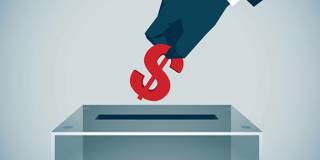Next year's US presidential election will have far-reaching consequences, not least for the economy. Given the stakes of the outcome, rigorous analysis of the candidates' sharply diverging – and often risky – policy platforms is urgently needed.
STANFORD – A year from now, the United States will elect its next president. The stakes are high, and the outcome will reverberate across the world in a number of spheres, not least the economy. Yet, thus far, most discussions of candidates’ economic policy proposals have been based more on feelings or ideology than rigorous analysis.
Barring a major unforeseen catastrophe, US economic performance will play a decisive role in the election. If the economy remains strong – unemployment is at a 50-year low for all workers, and its lowest-ever level for African-Americans and Hispanics – President Donald Trump stands a good chance of winning a second term.
Yet downside risks are mounting. If they materialize, a Trump victory would become less likely. According to recent models by Moody’s Analytics, it would take a tanking economy – or unusually high voter turnout among Democrats, but not Republicans – for Trump to lose in 2020.

STANFORD – A year from now, the United States will elect its next president. The stakes are high, and the outcome will reverberate across the world in a number of spheres, not least the economy. Yet, thus far, most discussions of candidates’ economic policy proposals have been based more on feelings or ideology than rigorous analysis.
Barring a major unforeseen catastrophe, US economic performance will play a decisive role in the election. If the economy remains strong – unemployment is at a 50-year low for all workers, and its lowest-ever level for African-Americans and Hispanics – President Donald Trump stands a good chance of winning a second term.
Yet downside risks are mounting. If they materialize, a Trump victory would become less likely. According to recent models by Moody’s Analytics, it would take a tanking economy – or unusually high voter turnout among Democrats, but not Republicans – for Trump to lose in 2020.